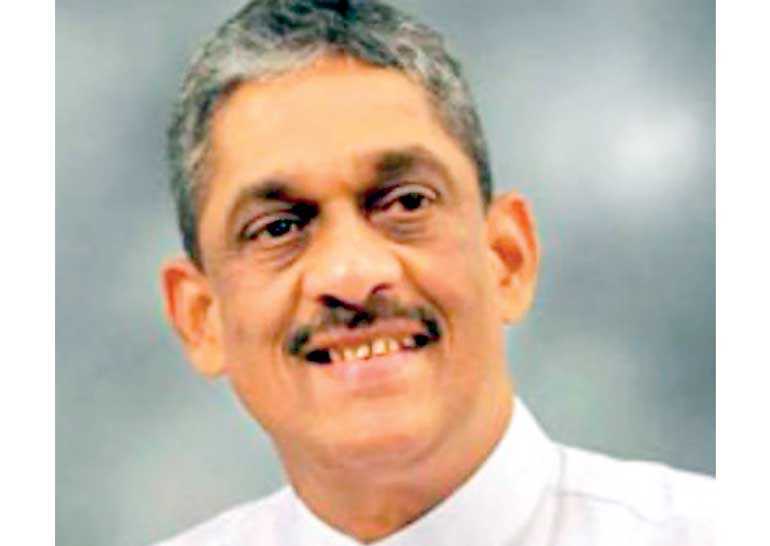Sunday Feb 22, 2026
Sunday Feb 22, 2026
Thursday, 7 November 2019 00:00 - - {{hitsCtrl.values.hits}}

If there was a need for additional fuel for the 2019 Presidential Election fire, Sajith Premadasa has added it by naming Sarath Fonseka as having responsibility for “national security” in any Cabinet that he establishes
By Emil van der Poorten
While surveying the current political landscape of Sri Lanka one cannot but have a sense of déjà vu relative to what occurred with the advent of Rajapaksa control of everything in this country.
At the outset of its ascent to power, the Rajapaksa juggernaut made Chandrika Bandaranaike’s less-than-democratic actions pale into insignificance.
The campaign leading up to Mahinda’s ascent to the throne was a no-holds-barred one. With the UNP lot throwing Sarath Fonseka, seen as a piqued political prima donna at the time, into the sacrificial fire, few political cognoscenti saw him as likely to end up as president irrespective of whether or not he got more votes than his opponent.
For those of short memory, it is necessary at this point to regurgitate the events immediately after the closing of the polls.
Let me remind you, dear reader, that the ballots in Colombo, always a United National Party stronghold, were not taken directly to the office of the Elections Commissioner for the final count and the announcement of the result thereof, something required by law.
They were, on the direct instructions of the reputed strategist of the Mahinda Rajapaksa campaign, taken to another set of premises BEFORE they arrived at what was supposed to be their final and only destination.
There is good reason to suspect that some strange fate befell these ballot boxes because no less a person than the Elections Commissioner of the time appeared before the television news cameras to remark on this fact. To describe his condition at the time as “distraught” would be to understate the case. As that old saying has it, he appeared to be “beside himself” and displayed the fact in unmistakable terms!
Some other information that might be relevant to the events of that night are the fact that, no sooner the “official” results of the election were declared by the authorities, Sarath Fonseka was forcibly removed from his election office in a prominent Colombo hotel, trussed up like a rooster ready for the barbecue and with his staff who were stripped down to their underwear, left exposed in the open space outside the hotel in which their campaign office had been located.
A Kangaroo Court sentenced to jail, without so much as a bed to sleep on, the man who, until he fell out with the other two parts of the triumvirate, had been featured country-wide on enormous “cutouts”, one-third of a leadership credited with destroying the Liberation Tigers of Tamil Eelam (LTTE).
Many of those seen as not being acolytes of the Government that established itself then, bolted to places such as Australia. One of those who did so, Mahesh Senanayake, returned after the Yahapalanaya Government was established, was appointed as head of the Sri Lankan Army on the basis of his skills and seniority and, in a really strange turn of fate, is a candidate in the 2019 Presidential Election!
What occurred at the time that the Rajapaksas first came to power wasn’t some conflict governed by rules set down by the Marques of Queensbury and, given what is at stake now, promises to be even less so.
If there was a need for additional fuel for the 2019 Presidential Election fire, Sajith Premadasa has added it by naming Sarath Fonseka as having responsibility for “national security” in any Cabinet that he establishes. This is the only person he has nominated to any position in a Cabinet he proposes to establish after victory.
That said, let me suggest that you, dear reader, juxtapose the upcoming scenario against the time that the Rajapaksa junta emerged, without so much as a “boo” from the proverbial “goose.”
May I suggest that we could be on the cusp of a situation unprecedented in the history of this nation with the additional factor that Sri Lanka seems to increasingly take political violence almost for granted?
Is the fate of this nation to be dictated by a bunch of fat-cat businessmen ensconced in their air-conditioned abodes in Colombo, looking for ever-greater profits or are we going to make sure that the greater good of the greater number of us takes precedence and that democratic practice prevails?
Given the current predicament of Sri Lanka, the cost of any inaction at this truly perilous time is, literally, incalculable.